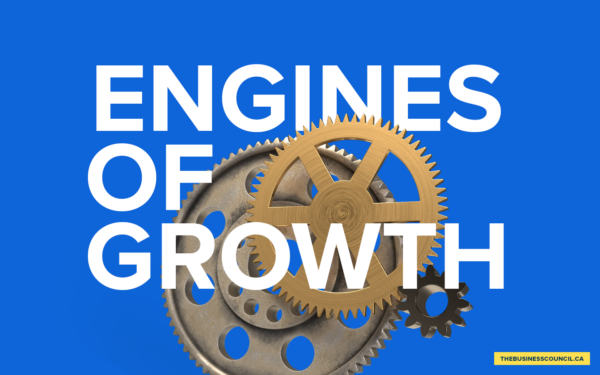National data and digital consultations roundtable report
with Hon. Navdeep Bains
Introduction
Digital technologies are advancing at a rapid pace, with important implications for our economy and society. We are generating ever-larger amounts of data about ourselves and the world around us, and our ability to collect, store, and make sense of that data has grown immensely.
But the digital revolution is also giving rise to new challenges. Many workers are anxious to know how automation will impact their careers and their job security. Citizens are increasingly concerned about their privacy, and about how businesses are gathering and using their personal information. Many Canadian companies, meanwhile, are rushing to embrace new and disruptive digital tools for fear of being left behind.
Policymakers are having trouble keeping up with all of these developments. This is why on June 19, 2018, the Honourable Navdeep Bains, federal Minister of Science, Innovation and Economic Development (ISED) launched the National Digital and Data Consultations. The goal of these consultations is to develop a national strategy for Canada’s data economy based on three pillars: business innovation, skills development, and trust and privacy. The government is expected to release an initial report in the fall of 2018, but the full process of developing and implementing the strategy is likely to take several years.
In support of these consultations, the Business Council of Canada hosted a roundtable on August 8, 2018 with the Minister, senior departmental officials, and representatives from 14 member companies. These representatives, mostly drawn from companies operating in traditional industries, shared their experiences with digital technology and data-driven innovation, and provided feedback on the government’s agenda.
This report summarizes their contributions, organized according to the consultation’s three pillars. Key takeaways are presented at the beginning of each section. A list of participants is included below.
1. Unleashing innovation: Fostering Canadian digital and data leadership
- ISED officials were interested in learning more about how corporate Canada is using digital technologies, and how these companies can help smaller firms innovate too.
- While some companies are further along than others, all see digitization and better use of data as a top priority—both to improve current business performance and to enable entirely new business models.
- The success of larger companies can fuel the growth of start-ups and the broader Canadian innovation ecosystem.

Industrial applications
Business participants suggested that Canada position itself in the global data economy by building on existing competitive advantages, rather than trying to create entirely new industries. They shared examples of how data analytics, AI, and other digital technologies are solving business problems in upstream industries such as construction, oil & gas, transportation, and aerospace. Construction companies, for instance, have developed a data-sharing platform to better manage their supplier relationships, and are using 3D modeling to limit design risks. They also see an opportunity to incorporate blockchain and smart contracts into Canada’s world-leading P3 procurement model.
Despite recent progress in industrial applications, digital technology is not spreading as quickly as everyone would like. One participant said that too many of these companies are stuck at an experimental stage; they need to do more to optimize their use of technology. He said some business leaders need to challenge their corporate culture and become more familiar with external trends.
Consumer applications
Companies that sell directly to consumers said they are under more immediate pressure to go digital. U.S. technology companies have created new customer expectations and demands for highly customized services. Broadcasters, retailers, and financial service providers fear they will be ―left behind‖ if they fail to leverage data in their operations and create more personalized, high-quality customer experiences.
One participant shared how the insurance industry is using digital technologies to become more customer-oriented. That includes moving from a client adviser model to selling more services directly through websites and mobile applications. One of the goals is to use data to better understand customer needs, manage risk, and control costs. The company can then ―nudge‖ clients to take steps to improve their health and financial security – for example, by reminding them to visit the dentist or take advantage of other benefits covered by their plans.
As personal data becomes a bigger value-driver for consumers, companies are exploring new business models such as ―open banking‖, which would allow people to more easily move their account data across different financial-service providers. Canadian banks are already collaborating to develop a new form of digital ID that customers will be able to use to verify their identities and control the sharing of their data. One participant suggested initiatives like this one are an opportunity for Canada to position itself as a key player in the development of global data marketplaces.
Supporting the ecosystem
As big companies move ahead with data-driven innovation, they are creating new opportunities for small businesses. Participants talked about how they are partnering with start-ups and scale-ups, especially in the AI space, to explore new ideas, innovations, and business models. Big companies have a lot to offer these firms, including financing, marketing support, and access to large databases. To be able to experiment and move faster, companies have created ―innovation labs‖ and other autonomous units that can work directly with outside entrepreneurs and researchers.

2. The future of work: Skills for the modern economy
- ISED officials asked business participants how technology is changing their workplaces and what Canada should do to better prepare and train workers for the digital economy.
- Companies face shortages of certain technical skills (e.g. data analytics, cybersecurity), as well as challenges finding candidates with the right mix of skills.
- Companies in traditional sectors may find it especially difficult to attract digital talent and to motivate their employees to embrace change.
- Industry participants identified several paths to address these problems, including:
- employer-sponsored training;
- new post-secondary programs and professional certifications;
- more opportunities for co-op and work-integrated learning; and
- marketing initiatives for youth to consider technology careers in traditional sectors.

Skills base not keeping up
Canada’s skill base is struggling to keep pace with the needs of employers in the digital economy. Several employers flagged talent shortages in technical fields, such as computer science, data science, and cyber-security. One company currently has more than 50 vacancies for cyber-security positions alone.
Other employers said that the problem is not so much a shortage of technical skills as the inability to find candidates with the right mix of skills. Digital and data teams, for instance, need to understand the business problems their companies are wrestling with. This requires them to have at least some industry experience. On the flipside, nontechnical employees in traditional business lines increasingly need to have a basic level of computer literacy so they can use new tools or identify where technology should be applied. Companies are also increasingly putting a premium on soft or so-called ―human skills, regardless of the position.
Challenges attracting and adapting skills
Industry participants said it is difficult for companies in traditional sectors—such as banking, retail, and natural resources—to attract new talent. Students and new graduates often do not realize that companies in these industries are working with increasingly sophisticated digital technologies. One executive who leads a data analytics team said he believes there is a false impression that Canadian companies are offshoring the technology components of their businesses.
It is also difficult to get current employees to embrace change. Technology is changing so fast that people can no longer rely solely on what they learned in their formal education. One participant said that workers need to update or relearn their skills every four or five years. A data scientist, for instance, may need to learn at least four entirely new coding languages over the course of his or her career. While some people are proactive in adapting to the digital economy, others are not.
Workplace training
Companies are responding to these challenges by investing more in workplace training. (The Business Council’s 2018 skills survey found that 50 per cent of large companies spend more than $1000 annually per employee on training.) One roundtable participant said his company puts its newly hired data analysts through a program that hones their technical skills with a combination of on-the-job learning, training modules, and courses at a post-secondary institution. Another company launched a program that helps nontechnical and mid-career workers improve their digital literacy. Every year, 20 to 30 of them go through a three-month rotation that trains them in new areas of the business. While companies acknowledge a responsibility to ―pull their weight‖ through such programs, one participant cautioned against requiring employers to adopt hard targets for workforce training.
Post-secondary programs and professional certification
Companies are eager to work with post-secondary institutions and certification bodies to develop specific skill sets. One participant said her company’s partnership with a local college was critical to ensuring a strong pipeline of talent. Some participants suggested that the federal government provide incentives for more colleges and universities to partner with industry to design new curricula. They also suggested the government consider incentives to develop professional certifications. There is currently no accreditation for data scientists in Canada and only one institution that offers a certification in cyber-security. Professional certification helps employers recognize the skills of candidates and could be especially helpful for new Canadians who hold foreign credentials.
Co-op and work-integrated learning
Participants recommended the government look at ways to expand support for co-op programs and work-integrated learning. (This is one of key objectives of the Business/Higher Education Roundtable, a group founded by the Business Council of Canada in 2015. The organization brings together post-secondary and industry leaders to help Canadians prepare for the economic and skills challenges of the future.) Workintegrated learning helps students gain real world experience and prepare for the job market; it also helps companies in traditional sectors compete for digital talent by exposing students to different career paths.
Marketing to youth
The group agreed that more needs to be done early on to encourage youth to pursue careers in digital technologies, and data analytics in particular. ISED officials said they are looking at ways to get the message out to students and families, including through improved labour market information and public consultations. Some participants suggested that Business Council members could pool their marketing capabilities and partner with the government on a campaign to raise public awareness. Another option would be to invite companies into primary and secondary school classrooms to explain the benefits of a career in technology. Many teachers would welcome this, but school boards policies often pose barriers to such outreach.

3. Trust and privacy: Rules to enable trust and adoption
- ISED officials wanted to learn how companies are addressing public concerns about the use of personal data and how Canada’s data rules might be updated to better support innovation.
- Companies see privacy and trust as essential components of their value offering to customers, and they are investing significant sums in technical and legal protections.
- Companies are satisfied with Canada’s current data rules, but agree that certain updates are needed to reflect the growing economic importance of data.
- Business participants identified several areas for further discussion, including:
- clearer delineation of personal vs. non-personal data;
- improvements to the consent-based model for data sharing;
- data portability and open banking;
- the Privacy Commissioner’s enforcement powers;
- regulatory alignment across agencies and jurisdictions; and
- the potential for industry-led standards and certifications.

Business practices to protect personal data
Industry participants said their companies place a high priority on privacy and the protection of personal data. This is a business imperative as well as an ethical responsibility. Customer trust is a competitive advantage that is hard to build, but easy to lose. One company represented at the roundtable uses a model of ―active consent‖ that tries to put customers in control of their own data. Another company has developed a data bill of rights for its customers. On the back-end, companies have checks and balances to put privacy at the core of product development and to prevent unauthorized access or misuse of data. They are investing in technical protections such as anonymization and have put legal protections into their contracts with suppliers and partners.
PIPEDA vs. GDPR
Companies largely support current regulations governing the collection and use of personal data in Canada. The principles-based and technology-neutral approach of the federal Personal Information Protection and Electronic Document Act (PIPEDA) is preferred to the more prescriptive General Data Protection Regulation (GDPR) enacted by the European Union in May 2018.
Though participants agreed with some of the objectives of the GDPR, they see it as excessive and costly to comply with, especially for small businesses. One company has gone so far as to block EU-based customers from accessing their services. Another said that the GDPR will pose a major obstacle to AI deployment. The GDPR may even prove counter-productive, with companies focusing resources on meeting the letter of the law instead of its underlying purpose. Participants urged the government to stick with a more pragmatic, ―made-in-Canada‖ approach to privacy.
Updating Canada’s model
Despite the strength of Canada’s current policy framework, industry participants agreed on the need for certain updates to reflect the growing importance of data as an economic resource. Some suggested the government focus less on privacy and more on how to create a marketplace that facilitates the exchange of data for value. Among other things, this may require clearer and more meaningful data rights for both individuals and businesses. One participant even suggested re-conceptualizing personal data as a form of labour.
On a practical level, some participants said Canada’s privacy laws need to better delineate between protected personal data and non-personal data that a company can collect and use more freely. They feel there is some ambiguity in the case of public images and anonymized data, for instance. Others raised concerns that the strict consent model for personal data is under stress. As individuals are increasingly bombarded with consent forms and terms of service notices, it could actually become harder for them to informed decisions about their data. To reduce the ―noise‖, Canada could consider a limited exception to consent when data is being processed for legitimate business purposes.
Participants said they would welcome a conversation about data portability. Giving individuals the right to move their data between service providers could encourage competition and enable new business models like open banking. But while the government can help set the agenda, they must work closely with the private sector on the technological infrastructure and other conditions needed to make data portability feasible and secure. Some participants are interested in exploring a potential role for independent data exchanges and data trusts in the marketplace.
Enforcement
ISED officials asked companies how Canada could strengthen the enforcement of PIPEDA. While most of them said they are open to a discussion about expanding the Privacy Commissioner’s powers, they identified a number of issues to address before moving in that direction:
- The government should consider whether the existing powers of the Commissioner are being used to their full extent. For instance, there may be a case to provide more resources for investigations and referrals to courts.
- If enforcement tools are expanded to include the power to make orders and levy fines, there may be a need to separate these from the Commissioner’s advocacy, advisory, and investigative functions.
- Since Canada’s current laws are principles-based, tougher enforcement would need to come with a clearer understanding of what constitutes non-compliance.
- Penalties should not be so severe as to discourage companies from collaborating with authorities to solve data protection and privacy challenges.
- The division of labour between provincial and federal privacy authorities should be carefully considered to avoid overlapping mandates. One company spoke of facing simultaneous investigations into the same case.
Regulatory coordination
Industry representatives said changes to federal data rules should be done in a comprehensive and coordinated manner. Any open banking regime, for instance, must be consistent with banks’ privacy obligations and sector-specific regulations around payments and anti-money laundering. Rules also need to apply equally to all players. One participant raised concerns that global technology companies are competing in their industry without being subject to the same regulatory obligations.
Policymakers will need to avoid creating a patchwork of laws within Canada and internationally that would raise compliance costs and make it hard to scale. Companies do not expect data laws to be identical across provinces and countries, but they want them to at least be equivalent or compatible. So, for example, while Canada does not need to fully adopt the GDPR, it is important to ensure that the European Union continues to recognize Canada’s laws as adequate.
Standards and certification
Some participants suggested the government look into the potential for industry-led standards and certification to simplify compliance for companies, especially across multiple jurisdictions. Companies would simply certify to a set of standards that would be recognized as meeting the requirements of local data protection and privacy laws. Some Canadian businesses and academics are already working together on such standards, including one set that incorporates ―privacy by design‖ principles that are already reflected in both PIPEDA and the GDPR. However, one participant warned about the dangers of an ―audit industry‖ that could force companies to spend money on consultants and auditors instead of more innovative solutions.

List of participants
- The Honourable Navdeep Bains, Minister of Innovation, Science and Economic Development, Innovation, Science and Economic Development Canada
- Alanna Boyd, Vice President, Public & Corporate Affairs, Sun Life Financial Inc.
- Spencer Charters, Vice President, Data and Advanced Advertising, Corus Entertainment Inc.
- Peter Danforth, Vice President, Loyalty, Loblaw Companies Limited
- Ali Ghiassi, Vice President, Industry Affairs and Government Relations, Great-West Lifeco Inc.
- Daniel S. Godlberg, President and Chief Executive Officer, Telesat
- Ben Harrison, Partner, Head of LP Engagement and Partnerships, Portag3 Ventures
- Richard Hines, Senior Director, Analytics and Digital Enablement, Air Canada
- Gerry Bush, Vice President, Strategy, Space, MDA
- Sylvia Kingsmill, Partner, National Leader, Digital Privacy and Compliance, Forensic Services, KPMG LLP
- John Knubley, Deputy Minister, Innovation, Science and Economic Development Canada
- Michael Legare, Vice President, Digital Transformation, National Bank of Canada
- Rosemarie Lipman, Chief Information Officer and Senior Vice President, Enterprise Intelligence, EllisDon Corporation
- Erin Lynch, Senior Director, Innovation Policy and Integration, Innovation, Science and Economic Development Canada
- Monica Masciantonio, Vice President, Government Affairs, Scotiabank
- Robert McKinstry, Special Business Research, Canadian Pacific Railway
- Jose Ribau, Executive Vice President, Digital & Innovation, Cadillac Fairview Corporation Limited
- Parvinder Sachdeva, Senior Policy Advisor, Office of the Minister, Innovation, Science and Economic Development Canada
- Mark Schaan, Director General, Marketplace Framework Policy Branch, Innovation, Science and Economic Development Canada
- Lisa Setlakwe, Senior Assistant Deputy Minister, Innovation, Science and Economic Development Canada
- Cam Vidler, Vice President, Economic Policy and Innovation, Business Council of Canada








